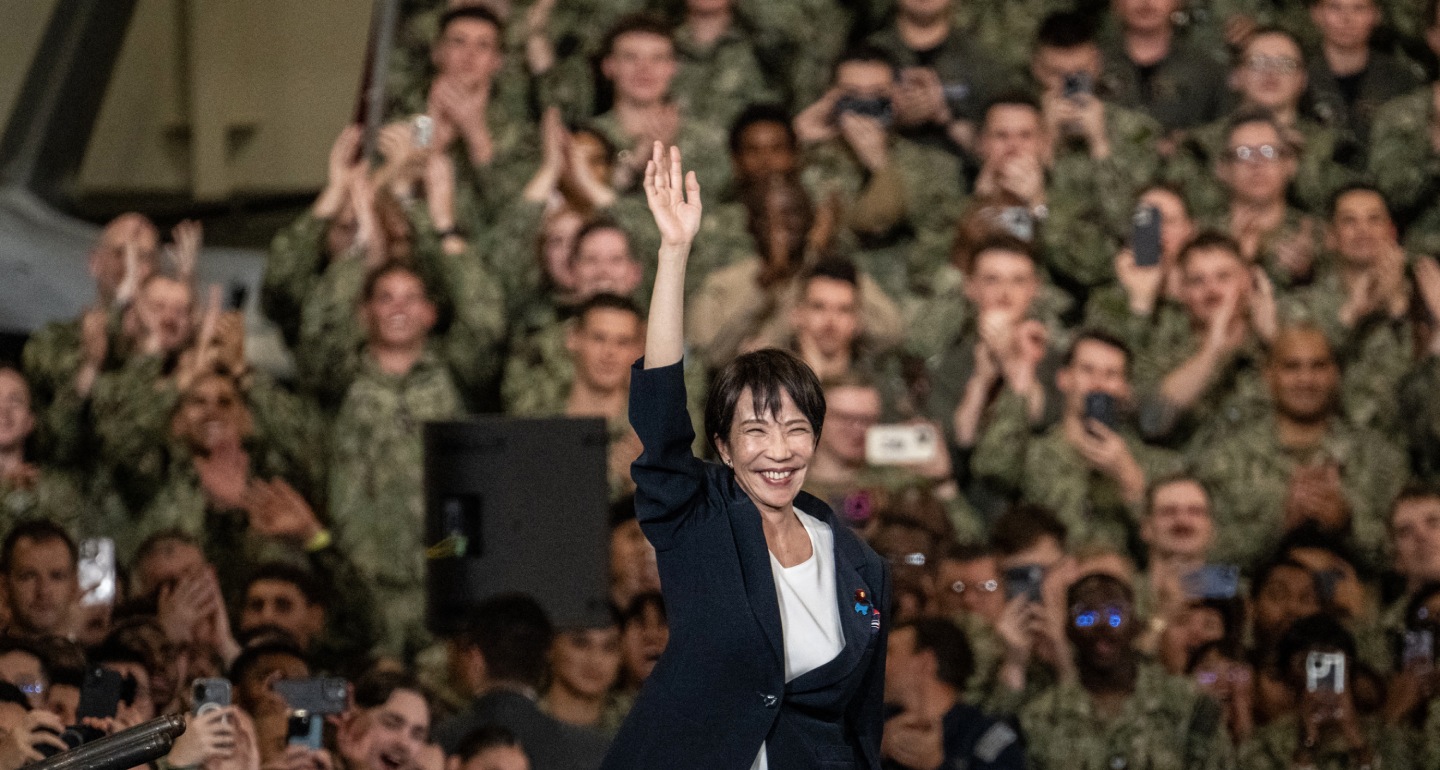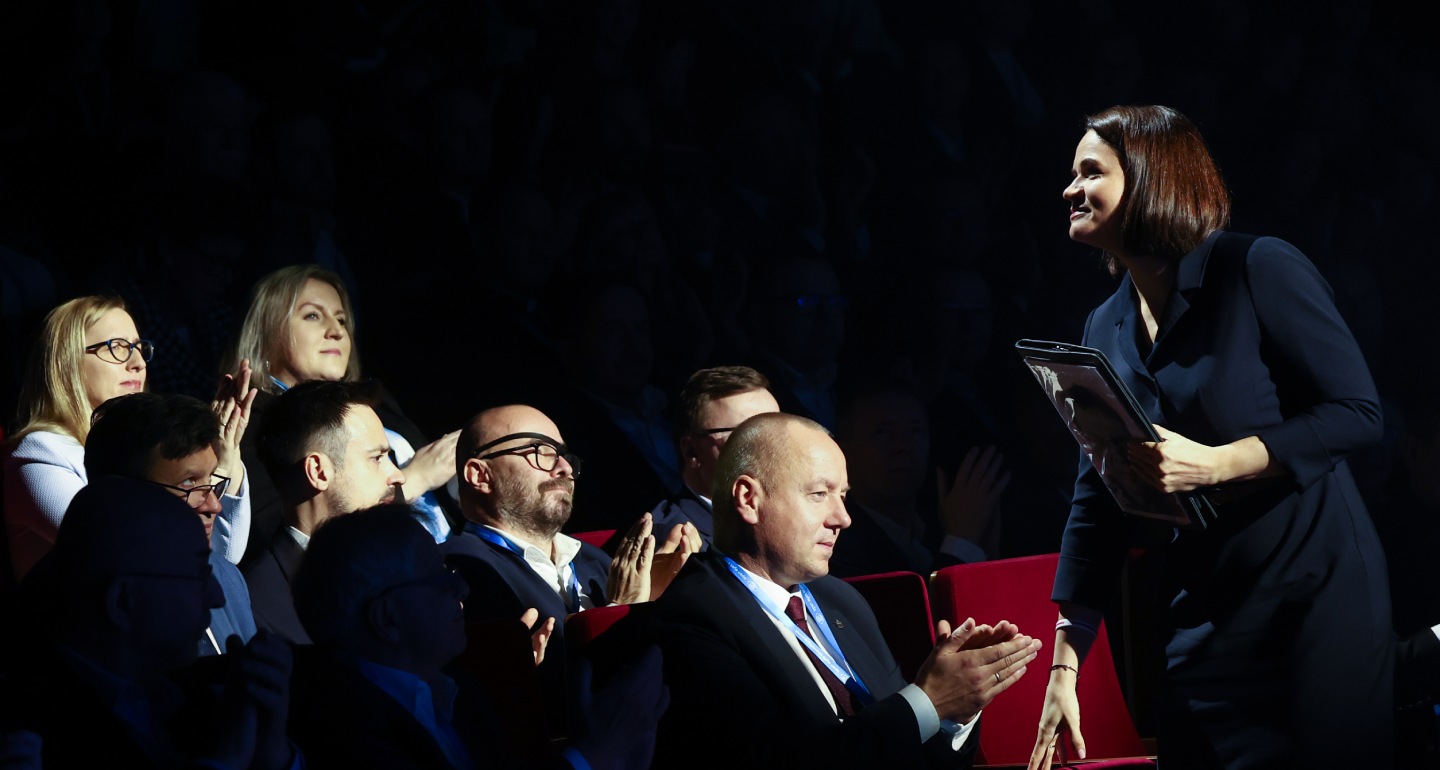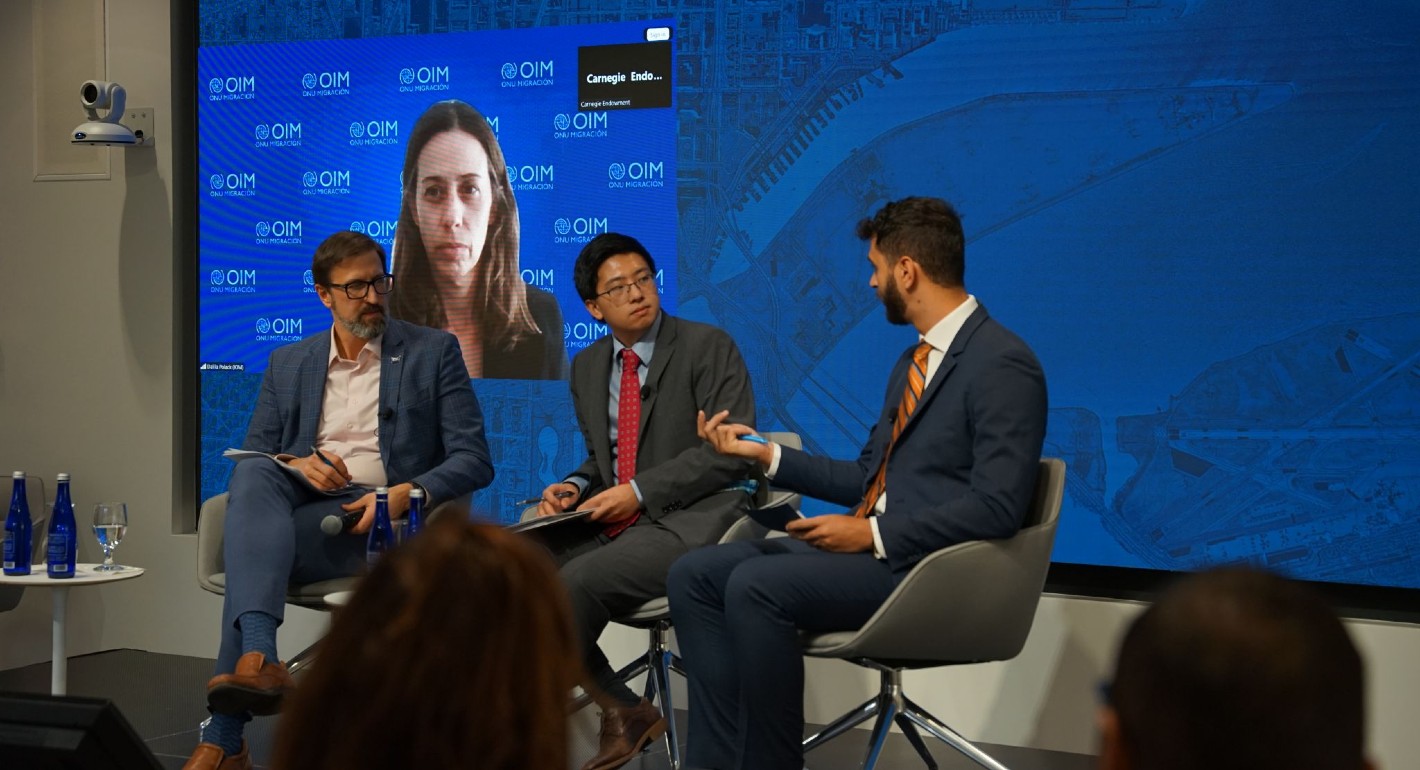We asked Carnegie’s directors to select one piece each that they felt stood out or best represented the program’s work for the year. Their selections are below.
Africa
“How Can African Countries Participate in U.S. Clean Energy Supply Chains?” by Zainab Usman and Alexander Csanadi
The Africa Program’s flagship publication for 2023 examines the recent major pieces of U.S. climate-related legislation—the Bipartisan Infrastructure Investment and Jobs Act, the Inflation Reduction Act, and the CHIPS and Science Act—and identifies three opportunities for African countries to integrate with U.S. clean energy industries. These are transition minerals supplies and battery manufacturing; research, development, and commercialization; and data collection and analytics. The paper concludes with recommendations for the U.S. government, African governments, and nongovernmental institutions from both sides of the Atlantic on how to advance this U.S.-Africa partnership.
Since the paper’s publication, we have discussed our findings with U.S. and African policymakers and at public events during COP28. We will travel to Cape Town to deliver a presentation at the 2024 Mining Indaba, one of the largest mining conferences in the world. The paper has been cited by The Economist, the Africa Report, and Cipher News, and it has been the subject of podcasts including The China-Global South Project, Columbia University’s Energy Exchange, and the Center for Strategic and International Studies’ Trade Guys. This paper will remain a foundational publication as the Africa Program scales up its trade and climate change areas of work.
—Zainab Usman, Africa Program director
American Statecraft
“Black Americans’ Opinions on the Israeli-Palestinian Conflict,” by Christopher Shell
As part of the American Statecraft Program’s effort to decipher how the nation views America’s role in the world, we conducted a survey of Black American views on the Israel-Hamas war. The findings were surprising on several fronts. The data, for example, suggests more support for President Joe Biden’s approach than some media reporting would suggest, even though many African Americans did not feel much connection to the plight of either the Israelis or the Palestinians.
—Christopher S. Chivvis, American Statecraft Program director
Asia
“China’s AI Regulations and How They Get Made,” by Matt Sheehan
This year, the UK AI Safety Summit and growing concerns about AI security focused much attention on where China will position itself on the future of AI. This piece explores the intricacies of China’s AI governance initiatives through a detailed analysis of the country’s regulations and the key players shaping them. Sheehan uses a “reverse engineering” approach to break down each regulation into its component parts to reconstruct a model of how China makes AI policy.
—Evan Feigenbaum, vice president for studies, Asia
California
“2023 Carnegie California Global Affairs Survey,” by Ian Klaus, Mark Baldassare, Marissa Jordan, and Hanan Coronado
Carnegie California’s first-ever global affairs survey offers a new, detailed, policy-relevant examination of how Californians think about the rapidly shifting global dynamics in the twenty-first century. California’s fate has long been linked to regional and global dynamics. The state’s rise in the twentieth century was inextricably intertwined with U.S. foreign policy and global affairs more generally. From the influx of domestic labor for shipbuilding and aviation during World War II to the impact that transnational research networks around physics and computing had on educational institutions and industry, the state has been shaped by the movement of people, goods, ideas, and capital within the United States and globally.
The survey polled Californians on topics ranging from transpacific competition and partnerships to subnational influence on the global stage to how they are thinking about health, security, technology, migration, and climate action. The survey will be conducted annually to allow Carnegie to track emerging shifts and trends.
—Ian Klaus, Carnegie California founding director
Democracy, Conflict, and Governance
“Understanding and Supporting Democratic Bright Spots,” by Thomas Carothers and Benjamin Feldman
Despite much bad news for democracy around the world, a surprising number of countries have experienced democratic openings in recent years. The Biden administration has launched a new policy initiative to provide special support for these democratic bright spots. Understanding the current array of such cases and past patterns of success and failure in democratic breakthroughs is crucial to ensuring a coherent and effective policy in this domain. Drawing on more than thirty case study countries, this paper provides an innovative, comprehensive analytic overview to meet that need.
—Frances Brown and Thomas Carothers, Democracy, Conflict, and Governance Program co-directors
Europe
“Ukraine’s Accession Poses a Unique Conundrum for the EU,” by Sophia Besch and Eric Ciaramella
In this article, Besch and Ciaramella examine what Ukraine’s EU accession process means for Kyiv and highlight the hard questions that Brussels and EU capitals must reckon with as they seek to make good on the EU’s promise as a political and security actor.
—Dan Baer, senior vice president for studies and Europe Program director
Global Order and Institutions
“UN Security Council Reform: What the World Thinks”
The abject failure of the UN Security Council to prevent Russia’s invasion of Ukraine or restrain the Israeli assault on Gaza has renewed global calls to reform the composition and decision rules of the world’s premier body for global peace and security. Most everyone agrees that the Security Council must expand. Unfortunately, consensus ends there, as nations diverge on the size of any enlargement, whether new seats should be elected or permanent, and whether new entrants should enjoy the veto.
This fifteen-author compendium maps the treacherous diplomatic terrain, capturing the perspectives of five permanent member countries, four leading aspirants, Africa’s leading candidates, two middle powers, and a small but influential island nation. The case studies suggest two plausible if narrow pathways to enlargement. But whether a bigger Security Council would be more effective as well as legitimate remains an open question.
—Stewart Patrick, Global Order and Institutions Program senior fellow and director
Middle East
“Arab Peace Initiative II: How Arab Leadership Could Design a Peace Plan in Israel and Palestine,” by Nathan J. Brown and Amr Hamzawy
The war in Gaza has consumed much of the Middle East since Hamas’s brutal terror attack in Israel on October 7 and Israel’s subsequent devastating ground and air campaign that has killed tens of thousands of Palestinians. While much of the analysis surrounding the conflict is either unrealistic or unhelpfully defeatist, Hamzawy and Brown put forward a detailed path forward to both end the current violence in Gaza and bring closure to the conflict that has raged in the region for more than seventy years.
Hamzawy and Brown’s Arab Peace Initiative II lays out a framework that would recognize both Palestinian and Jewish national identities while condemning antisemitic, Islamophobic, and racist rhetoric and actions. It calls for a multilateral Arab approach to lead a diplomatic effort to resolve the conflict. And they draw lessons from the failures and limited successes of past multilateral efforts. It is not surprising that this was one of the most widely read pieces to come out of the Middle East Program this year. Hamzawy and Brown’s intriguing essay offers one of the most compelling and hopeful arguments for a path out of the conflict.
—Sarah Yerkes, Middle East Program senior fellow
Nuclear Policy
“How Climate Change Challenges the U.S. Nuclear Deterrent,” by Jamie Kwong
Climate change could have mission-altering impacts on the U.S. nuclear deterrent, yet officials and experts alike have paid these implications little attention. In this groundbreaking study, Kwong examines the range of climate change challenges and threats that could detrimentally affect the U.S. nuclear arsenal and offers recommendations for how the United States can better prepare for, mitigate, and adapt to these challenges. Kwong’s work has helped initiate a larger, much-needed conversation around the world about the vulnerability of nuclear weapons programs to a changing climate.
—James Acton, Nuclear Policy Program co-director
Russia and Eurasia
“Rogue Power: Russia’s Wartime Foreign Policy,” by Eugene Rumer
The scholars of Carnegie’s Russia and Eurasia Program have consistently called for a clear-eyed Western response to Russia’s unprovoked full-scale invasion of Ukraine. That includes matching means and ends and being realistic about the strains that a protracted conflict will impose on the sustainability of Western policies. Eugene Rumer, the director of the Russia and Eurasia Program, analyzed Russia’s defiant, increasingly aggressive foreign policy in a widely read Carnegie paper, warning that the country is poised to be a global disruptor. Rumer and I then followed up in a November 2023 Wall Street Journal essay calling for an end to “magical thinking” about the war and for Western leaders to devise a long-term strategy geared toward increasing and sustaining the pressure on the rogue regime in the Kremlin. That task is now all the more challenging amid heightened political polarization and dysfunction in Washington on the eve of the 2024 election season and the ripple effects of the Israel-Hamas war.
Meanwhile, we should not ignore completely the quiet conversations that are being held in Moscow about the need to prepare for the post-Putin era. The best proof is the runaway success of a well-timed book by Alexander Baunov, a senior fellow at the Carnegie Russia Eurasia Center in Berlin. The End of the Regime: How Three European Dictatorships Ended topped the Russian nonfiction bestseller list. Its colorful cover was boldly displayed in leading bookshops, including across the street from the former KGB’s notorious headquarters on Lubyanka, sending a none too subtle message to Russia’s political masters.
—Andrew S. Weiss, vice president for studies, Russia and Eurasia Program
South Asia
“India’s Statistical System: Past, Present, Future,” by Pramit Bhattacharya
Let’s face it: the motivation to read a deep dive about a country’s statistical system can be difficult to find, but Bhattacharya’s paper is an exception. Bhattacharya, responsible for setting up one of India’s first data journalist units and a current columnist at Mint and the Hindustan Times, has written an unlikely page-turner. His attention to detail, historical knowledge, and journalistic flair are on full display in this Carnegie essay, in which he offers readers a 360-degree look at the crisis engulfing India’s statistical system, once the envy of the world.
As Bhattacharya notes on the opening page, “The statistical system of a country acts as its mirror.” India’s mirror is badly tarnished, with resource gaps, archaic governance procedures, and meddlesome politicians collectively responsible for the current quagmire. But Bhattacharya does more than admire the problem. He outlines a way for the Indian government to reclaim the country’s erstwhile statistical glory—a badge of honor that India wore proudly and, if policymakers heed Bhattacharya’s advice, one that it can don once more.
—Milan Vaishnav, South Asia Program director
Sustainability, Climate, and Geopolitics
“Friendshoring Critical Minerals: What Could the U.S. and Its Partners Produce?” by Bentley Allan, Noah Gordon, and Cathy Wang
If the world hopes to stop exacerbating climate change, it will need a lot more critical minerals for clean energy goods like batteries and wind turbines. The United States faces a special challenge: most of these minerals are processed in China, and rising tensions between the two superpowers are increasingly interrupting the free flow of trade. This paper analyzes reserves of critical minerals in democratic countries and finds that it is possible to “friendshore” minerals production—but it would require extraordinary technological and financial cooperation between the United States and its partners.
—Noah Gordon, Sustainability, Climate, and Geopolitics Program acting co-director
Technology and International Affairs
“Proposal for an International Panel on Artificial Intelligence (AI) Safety (IPAIS): Summary”
This proposal advocates for the creation of an International Panel on AI Safety in response to the growing challenges posed by advanced AI—an idea that is already stimulating international cooperation. Drawing inspiration from the Intergovernmental Panel on Climate Change, we make the case for an independent, science-led organization that exists to validate technical knowledge, create greater scientific consensus, and engage countries from every part of the world. In November, this idea inspired the coalition of countries at the UK AI Safety Summit to task a group of world-renowned scientists with publishing a report on AI safety by next year. Many view this achievement as the first step toward the creation of the very institution that Carnegie calls for.
—Arthur Nelson, Technology and International Affairs Program deputy director










